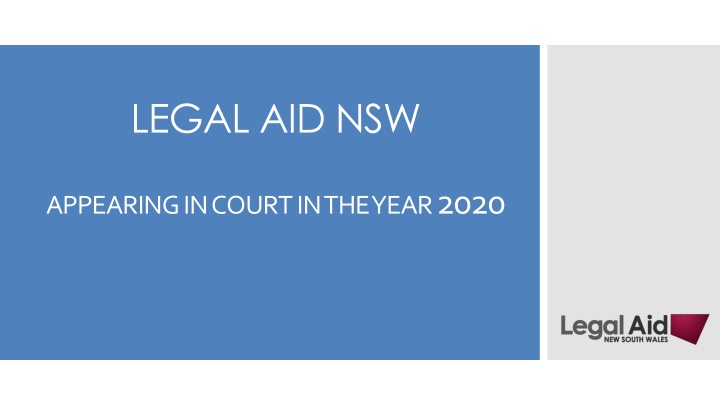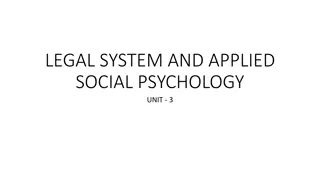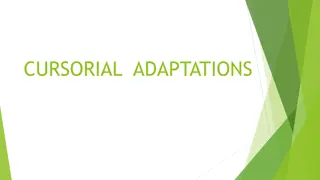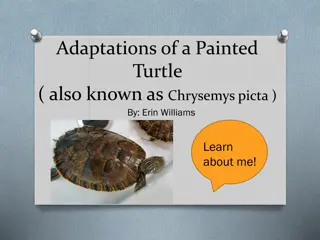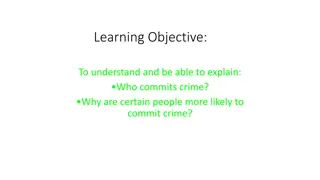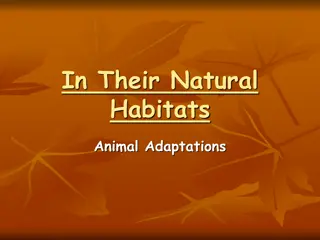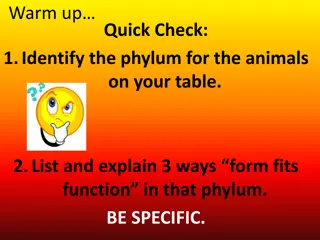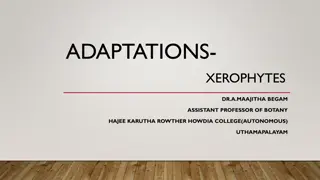Challenges and Adaptations in Criminal Practice During COVID-19
The content highlights the challenges faced by legal practitioners in Criminal Law during the COVID-19 pandemic. It addresses practical difficulties in court appearances, advocacy tips, bail and sentencing issues, and ethical considerations. The presentation emphasizes the importance of fair trial processes, especially in the context of virtual courtrooms. It also discusses the current state of play in the Supreme Court, District Court, and Local Court. Various obstacles such as video connection quality, confidential discussions, document handling, and client communication are explored with insights from legal professionals.
Uploaded on Aug 13, 2024 | 0 Views
Download Presentation

Please find below an Image/Link to download the presentation.
The content on the website is provided AS IS for your information and personal use only. It may not be sold, licensed, or shared on other websites without obtaining consent from the author.If you encounter any issues during the download, it is possible that the publisher has removed the file from their server.
You are allowed to download the files provided on this website for personal or commercial use, subject to the condition that they are used lawfully. All files are the property of their respective owners.
The content on the website is provided AS IS for your information and personal use only. It may not be sold, licensed, or shared on other websites without obtaining consent from the author.
E N D
Presentation Transcript
LEGAL AID NSW APPEARING IN COURT IN THE YEAR 2020
R v Macdonald; R v Edward Obeid; R v Moses Obeid (No 11) [2020] NSWSC 382 at [29] Fullerton J said: The accused are entitled to a fair trial which includes, necessarily, fair process and procedures. I am of the view that a trial of the accused in a virtual courtroom is impractical. I have further resolved to the view that the accused s right to a fair trial would be at risk were I to order that it continue at this time, subject as it is to the current health and safety regime imposed under the Public Health (COVID-19 Restrictions on Gathering and Movement) Order 2020 (NSW) under s 7 of the Public Health Act 2010 (NSW), and the Chief Justice s direction that there be no physical appearances in trial proceedings.
The purpose of this presentation: The purpose of this presentation: To provide practitioners with some practical advice about the conduct of criminal practice during the COVID-19 pandemic and beyond.
The format of this presentation The format of this presentation: 1. 1. Practical difficulties in the practice of criminal law Practical difficulties in the practice of criminal law Daniel Pace, Solicitor Advocate at Legal Aid NSW 2. 2. Advocacy Tips when appearing in Court Advocacy Tips when appearing in Court Riyad El-Choufani, Barrister, Forbes Chambers 3. 3. Bail and Sentencing Bail and Sentencing Rose Khalilizadeh, Barrister, Forbes Chambers
Practical Practical difficulties in the difficulties in the practice of practice of criminal law criminal law during COVID during COVID- -19 1. Practical difficulties when appearing in Court 2. Practical Difficulties in communicating with stakeholders 19 3. Ethical considerations in dealing with these practical difficulties
Current state of play: Supreme Court District Court Local Court
a) Difficulties with the quality of video connection. E.g. poor vision, poor sound, delay in transmission b) Difficulties with drop-outs c) Difficulties in holding confidential discussions with their client d) Difficulties in clients being able to follow along the proceedings e) Not being provided with details for the video connection f) Difficulties in being persuasive through video link g) Documents: Difficulties in having documents sought to be tendered before the court Difficulties in showing documents to witnesses and the Court Practical Practical difficulties difficulties when when appearing in appearing in Court Court
Practical Practical difficulties that difficulties that when when appearing in appearing in Court Court a) a) Difficulties with the quality of video connection Difficulties with the quality of video connection E.g. poor vision, poor sound, delay in transmission b) b) Difficulties with drop Difficulties with drop- -outs outs
c) c) Difficulties in holding confidential discussions with their client Difficulties in holding confidential discussions with their client Section 22C Evidence (Audio and Audio Visual Links) Act 1998 and r4A Evidence (Audio and Audio Visual Links) Regulation 2015, is where we find the Courts power to direct the accused to appear by AVL for all physical appearance proceedings. Physical appearance proceedings are defined in s3 Evidence (Audio and Audio Visual Links) Act 1998 and include trial, hearing of charges , fitness inquiries and certain bail applications Practical Practical difficulties difficulties when when appearing in appearing in Court Court Section 22C(3) states that the Court may direct the accused to appear by AVL for all physical appearance proceedings . Read in isolation, s22C(3) suggests that the accused could be directed to appear by AVL for contested matters, including for trial in the District or Supreme Court. For an order to be made for the accused to appear by AVL pursuant to s22C(3) the following preconditions must be met: The parties must be afforded an opportunity to be heard (s22C(5)); The direction must be in the interests of justice (s22C(6)); The direction cannot be inconsistent with the advice of the Chief Medical Officer of the Ministry of Health relating to Covid-19 (s22C(6)); The Court must be satisfied that there is a reasonable opportunity for the accused The Court must be satisfied that there is a reasonable opportunity for the accused to have private communication with their legal representative (s22C(7)). to have private communication with their legal representative (s22C(7)).
d) d) Difficulties in clients being able to follow along the proceedings Difficulties in clients being able to follow along the proceedings There is no easy fix to this issue. Practical Practical difficulties difficulties when when appearing in appearing in Court Court Check in with you client from time to time to see if their connection is still present. Your client is entitled to be present from the proceeding unless they voluntarily absent themselves from the proceedings see [2012] NSWCCA 286 and [2012] NSWCCA 286 and R v R v McHardie McHardie& Danielson see Williams v R Williams v R [1983] 2 NSWLR 733. & Danielson [1983] 2 NSWLR 733. Obtain formal instructions from your client to proceed in their absence in the event of a drop out or other unrelated event.
e) e) Not being provided with details for the video connection Not being provided with details for the video connection Practical Practical difficulties difficulties when when appearing in appearing in Court Court The District Court practice seems to operate on the basis that once you ve communicated with the Court or associate that you appear in a matter, then a link with a dial-in time will be provided to you by email. In the Local Court it is important that practitioners email the relevant registry (ahead of time) and inform them of their intention to appear remotely (or by email) and within that email you provide your contact details.
Practical Practical difficulties difficulties when when appearing in appearing in Court Court f) f) Difficulties in being persuasive through video link Difficulties in being persuasive through video link 1. Talk slowly 2. Mention your name (where possible) before speaking 3. Be punchy in your submissions.
g) g) Documents Documents Practical Practical difficulties difficulties when when appearing in appearing in Court Court i. i. Difficulties in having documents sought to be tendered before the court Difficulties in having documents sought to be tendered before the court ii. ii. Difficulties in showing documents to witnesses and the Court Difficulties in showing documents to witnesses and the Court Email the documentary evidence you rely ahead of time (NOT ON THE DAY) If the evidence is large and not able to be sent by email, then arrangements should be made in advance to deliver the material to the Court Think about how you seek to refer to the material. Paginate Index your material
Practical Practical Difficulties in Difficulties in communicating communicating with with stakeholders stakeholders 2. 2. Practical Difficulties in communicating with Practical Difficulties in communicating with stakeholders stakeholders
Ethical Ethical obligations in obligations in dealing with dealing with these practical these practical difficulties difficulties 3. 3. Ethical obligations in dealing with these practical difficulties Ethical obligations in dealing with these practical difficulties 1. Formality before the Court 2. Communicating with the Court 3. Communicating with your Opponent 4. Prosecutor duties 5. Providing documents to the Court
Ethical Ethical obligations in obligations in dealing with dealing with these practical these practical difficulties difficulties 18 Formality before the court 18.1 A solicitor must not, in the presence of any of the parties or solicitors, deal with a court on terms of informal personal familiarity which may reasonably give the appearance that the solicitor has special favour with the court.
Communicating with the Court and your opponent Communicating with the Court and your opponent 1. It is important remember that when you re seeking to communicate to the Court you should: a. Notify your opponent in writing and obtain their consent or; b. You should cc them into your correspondence to the Court. Ethical Ethical obligations in obligations in dealing with dealing with these practical these practical difficulties difficulties 2. R v Lazarus [2017] NSWCCA 279 at [85] [88] the Court set out a neat reminder for practitioners as to their ethical obligations when communicating with the Court. Bellew J said: Plainly, a judge must Plainly, a judge must not litigation, behind the back of the other: litigation, behind the back of the other: Re JRL; Ex CLR 342; [1986] HCA 39 at 346 per Gibbs CJ (emphasis added). CLR 342; [1986] HCA 39 at 346 per Gibbs CJ (emphasis added). not receive representations from one party to receive representations from one party to Re JRL; Ex parte parteCJL CJL (1986) 161 (1986) 161 The practice of a party s legal representative engaging in correspondence The practice of a party s legal representative engaging in correspondence of this kind, without informing the representative of the other party to of this kind, without informing the representative of the other party to the proceedings, is one which must be firmly discouraged the proceedings, is one which must be firmly discouraged.
Ethical Ethical obligations in obligations in dealing with dealing with these practical these practical difficulties difficulties Rule 29 Prosecutor s duties
Providing documents to the Court Providing documents to the Court Ethical Ethical obligations in obligations in dealing with dealing with these practical these practical difficulties difficulties There is a difference between filing and tendering documents Despite emailing through your document don t over look the fact that you need to actually seek to formally tender the documents on the record, don't just assume it will be done. How to put on further evidence where there has been a change in circumstance between hearing and judgment E.g. Covid-19 Pandemic
R v Macdonald; R v Edward Obeid; R v Moses Obeid (No 11) [2020] NSWSC 382 at [29] Fullerton J said: The accused are entitled to a fair trial The accused are entitled to a fair trial which includes process and procedures. process and procedures. I am of the view that a trial of the accused in a virtual courtroom is impractical virtual courtroom is impractical. I have further resolved to the view that the accused s right to a fair trial would be at risk were I to order that it accused s right to a fair trial would be at risk were I to order that it continue continueat this time, subject as it is to the current health and safety regime imposed under the Public Health (COVID-19 Restrictions on Gathering and Movement) Order 2020 (NSW) under s 7 of the Public Health Act 2010 (NSW), and the Chief Justice s direction that there be no physical appearances in trial proceedings. includes, necessarily, fair fair
Riyad El-Choufani Appearing remotely Appearing remotely some basic advocacy tips some basic advocacy tips
The challenges The challenges The technology failing Engaging with the listener Using rhetorical techniques Tendering or referring to documents Capturing the emotion of a case
DOS & DONTS DO S & DON TS See written checklist list of 13 Do s and Don t s Focus on 10 Do s & Don t s
1. DO a written outline of your submissions 1. DO a written outline of your submissions Length Structure Style Reference to law and the material Apply the because test
2. DO supplement written submissions with oral 2. DO supplement written submissions with oral submissions submissions Always turn up (remotely or physically) Refer to the written submissions but don t repeat them Focus on the most important parts of the case Encourage a discussion
3. 3. DO watch the screen DO watch the screen Problems establishing eye contact Don t read notes
4. DO speak with the listener in mind 4. DO speak with the listener in mind Speak slowly Be concise Use simple language Be interesting
5. DO interact with the listener 5. DO interact with the listener Conversational style Ask the occasional question Pauses
6. DONT carry on 6. DON T carry on Everyone can see you You will look like a goose It is not persuasive
7. DO refer to the tender bundle 7. DO refer to the tender bundle See Daniel Pace presentation One additional point - formally identify and tender documents sent electronically
8. DO talk to your opponent before court 8. DO talk to your opponent before court Pre-pandemic think about benefits speaking to prosecutor Call the prosecutor Confirm it in writing
9. DO prepare with performance in mind 9. DO prepare with performance in mind More preparation may be required appearing remotely Preparation of written submissions Preparation of tender bundle Concise oral submissions means MORE prep
10. BUT.DO appear in 10. BUT .DO appear in- -person (if you can) person (if you can) A cop-out!! Remember the challenges? The do s and don t s do not eradicate
Rose Rose Khalilizadeh Khalilizadeh Bail and Sentencing Bail and Sentencing
How How (and why) (and why) should I obtain evidence of hardship in custody? evidence of hardship in custody? should I obtain
How How (and why) (and why) should I obtain evidence of should I obtain evidence of hardship to third parties? hardship to third parties?
How How (and why) (and why) should I obtain expert evidence? should I obtain expert evidence?
How How (and why) (and why) should I obtain evidence of the should I obtain evidence of the impacts upon rehabilitation? impacts upon rehabilitation?
What do I do if I cannot obtain any evidence What do I do if I cannot obtain any evidence specific to my case? specific to my case?
How do I tender the evidence? How do I tender the evidence?
